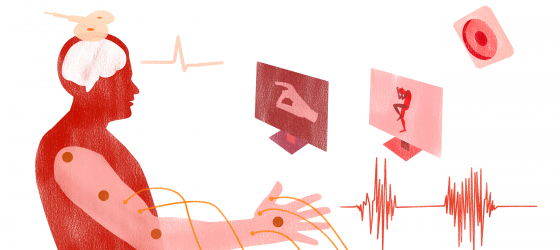Study of corticomotor responses and behavioral outcomes following action observation and motor imagery and virtual reality alone or combined with electrical and proprioceptive stimulations
Scientists: Avanzino L., Bisio A., Bove M.
Study of the neural correlates of complex gait during cognitive-motor dual-task and obstacle crossing in healthy subjects and in patients with Parkinson’s disease and multiple sclerosis
Scientists: Avanzino L., Bisio A., Bove M.
Study of the neural correlates and behavioural response involved in emotional processing, recognition and emotion-motor interaction in healthy subjects and in patients with Parkinson’s disease
Scientists: Avanzino L.
